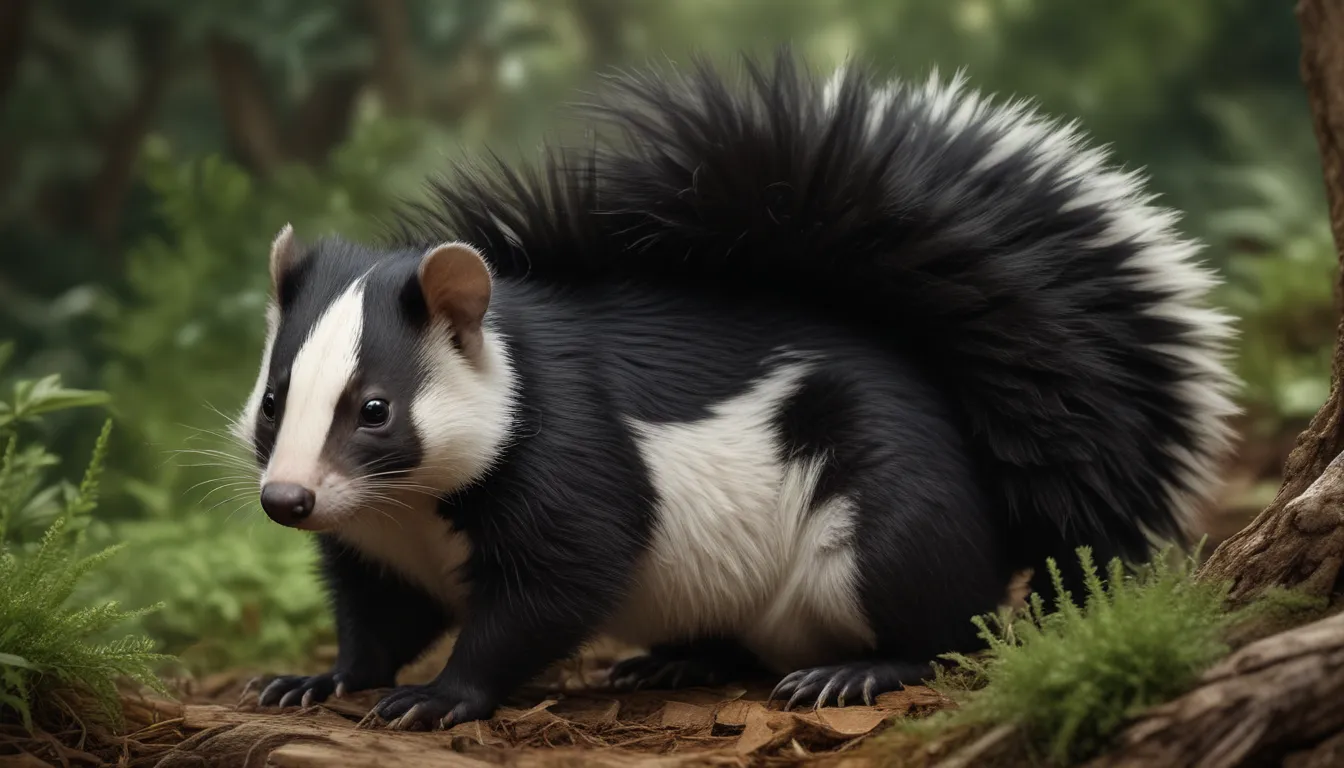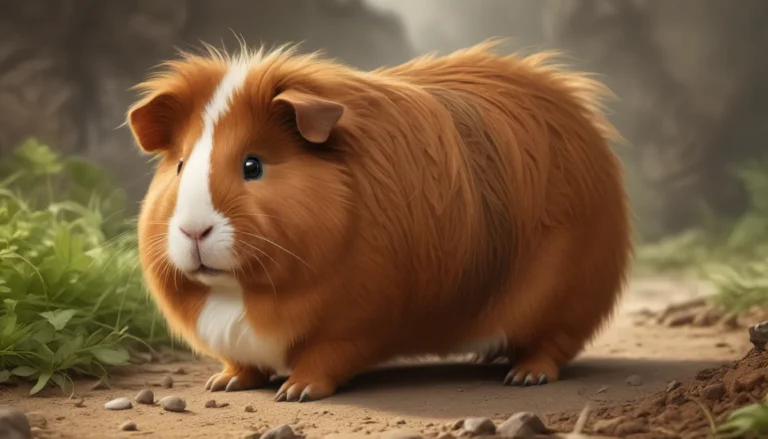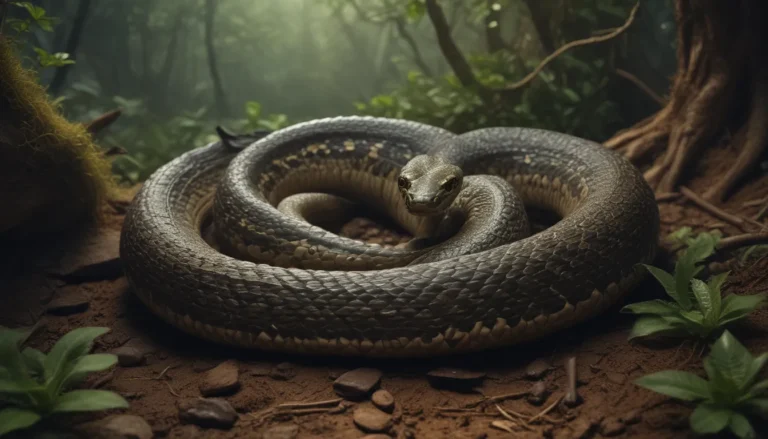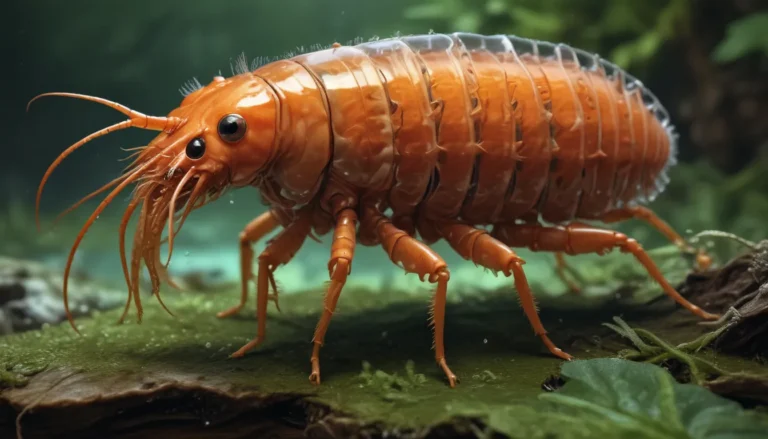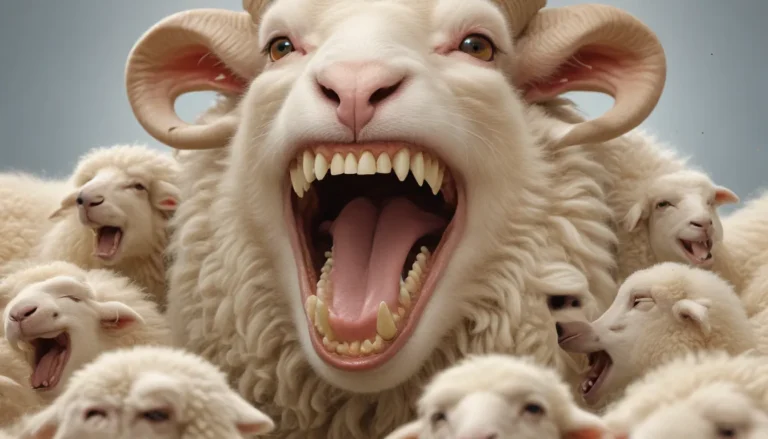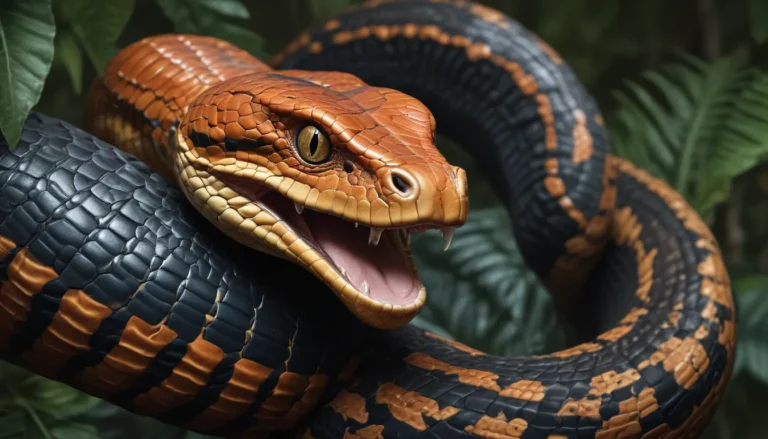The pictures we use in our articles might not show exactly what the words say. We choose these pictures to make you interested in reading more. The pictures work together with the words but don’t take their place. The words still tell you the important facts.
Skunks, with their iconic black and white markings and notorious foul-smelling spray, are creatures that spark both curiosity and caution in humans. These fascinating beings, primarily found in North and South America, are not just known for their defense mechanism but also for their adaptability and unique characteristics. In this article, we delve into 12 captivating facts about skunks that will illuminate their intriguing nature and debunk common misconceptions. Get ready to explore the secrets of the skunk world!
Unveiling the Mysteries of Skunks
- Skunks are nocturnal creatures with a powerful defense mechanism that involves spraying a pungent odor as a means of protection.
- They communicate through scents, sounds, and body movements, and can be beneficial for controlling pest populations on farms.
- Skunks exhibit diverse species, exceptional senses, and a relatively long lifespan. They hibernate in winter, communicate effectively, and can spray accurately and repeatedly when threatened.
The Skunk’s Shield: A Formidable Defense Mechanism
Skunks possess a remarkable defense mechanism that involves spraying a strong-smelling fluid from their anal glands when they perceive danger. This spray can reach up to ten feet and is potent enough to deter predators, showcasing the skunk's impressive ability to defend itself against threats.
A Spectrum of Skunk Species
Contrary to popular belief, skunks come in various species found across different regions in North and South America. Some of the well-known types include the striped skunk, spotted skunk, and hog-nosed skunk, each with its unique characteristics and behaviors.
Creatures of the Night: Skunks’ Nocturnal Lifestyle
Skunks are primarily nocturnal beings, meaning they are most active during the night. To thrive in this lifestyle, they have evolved excellent night vision and an acute sense of smell to navigate the darkness and carry out their activities under the veil of night.
Senses Beyond Scent: The Acuity of Skunks
Skunks boast an exceptional sense of smell, which they utilize for locating food, detecting predators, and communicating with their peers. Additionally, they possess keen hearing capabilities that aid them in sensing potential threats and imminent danger in their surroundings.
Omnivorous Palates: Skunks’ Varied Diet
Skunks are renowned for their diverse diet, which includes a mix of plant matter and meat. They forage on fruits, berries, insects, small vertebrates, and even scavenged food to sustain themselves in various habitats, showcasing their adaptability and resourcefulness.
Digging Deeper: Skunks’ Expertise in Excavation
Equipped with robust front claws, skunks exhibit excellent digging skills, using them to create burrows for shelter and foraging purposes. These burrows often feature multiple chambers and entrances, serving as a strategic retreat from potential threats.
Predators and Prey: Skunks’ Place in the Food Chain
Thanks to their potent defensive spray, skunks have few natural predators. Nevertheless, some cunning predators like owls, bobcats, foxes, and coyotes have developed tactics to hunt skunks without falling victim to their defensive mechanism, showcasing the intricate dynamics of predator-prey relationships in nature.
Embracing Winter Slumber: Skunks’ Hibernation Habits
In colder climates, skunks enter a state of partial hibernation during the winter months. During this period, they exhibit reduced activity, prolonged periods of sleep, and rely on their stored body fat to endure the harsh winter conditions until the arrival of spring.
The Language of Skunks: Communication Strategies
Skunks employ a combination of scents, postures, and vocalizations to convey messages to their fellow skunks. Whether through stomping, growling, hissing, or specific body movements, skunks effectively communicate with each other within their territories, showcasing their sophisticated communication skills.
Farmers’ Allies: Skunks as Pest Controllers
While skunks may occasionally cause minor disturbances by raiding crops or poultry, they also play a crucial role in agricultural settings by consuming large quantities of agricultural pests such as insects, rodents, and grubs. Their presence can help farmers mitigate pest populations naturally, highlighting their value in pest control.
Longevity in Nature: Skunks’ Lifespan
In the wild, skunks typically have a lifespan of around 2-3 years. However, under proper care and nutrition in captivity, skunks have been known to live up to 10 years or more, showcasing their resilience and adaptability when provided with optimal living conditions.
Precision in Defense: Skunks’ Spraying Abilities
Contrary to common misconceptions, skunks exhibit remarkable control over the accuracy, distance, and frequency of their spray. They reserve this defensive mechanism as a last resort, utilizing it only when all other warning signals fail to deter potential threats, underscoring their strategic use of self-preservation tactics.
Skunks truly stand out as captivating creatures with a myriad of adaptations and capabilities. From their potent defense mechanism to their versatile diet and sophisticated communication methods, skunks occupy a unique and intriguing niche in the animal kingdom, deserving appreciation and understanding.
So, the next time you encounter a skunk, remember these 12 fascinating facts and embrace the enigmatic world of these misunderstood yet remarkable creatures.
Embracing Harmony with Skunks
Skunks, often shrouded in misconceptions, are essential components of maintaining ecological balance. Their distinctive markings and defensive mechanisms add to their mystique in the animal kingdom. Skunks' omnivorous nature and varied diet, encompassing insects, small mammals, plants, and fruits, reflect their adaptability and resourcefulness. Preferring wooded areas or farmlands, skunks lead primarily solitary lives, coming together only during the mating season. While not naturally aggressive, skunks resort to spraying as a final recourse for defense. Understanding skunks' behaviors and habits can foster peaceful coexistence with these creatures and foster appreciation for their role in the ecosystem.
Frequently Asked Questions
Q: Are skunks dangerous?
A: Skunks are not inherently dangerous and will only resort to spraying if they feel threatened. It's advisable to maintain a safe distance and avoid sudden movements when encountering a skunk.
Q: How far can a skunk spray its scent?
A: Skunks can spray their scent up to 10 feet away as a defense mechanism against potential threats.
Q: What to do if a pet is sprayed by a skunk?
A: If your pet gets sprayed by a skunk, keep them outdoors as the smell can be overpowering. Use a solution of hydrogen peroxide, baking soda, and dish soap to neutralize the odor, avoiding contact with your pet's eyes.
Q: Can skunks transmit diseases?
A: Skunks can carry diseases like rabies, but the risk of transmission to humans is relatively low. It's essential to avoid contact with wild skunks and ensure your pets are vaccinated.
Q: How to prevent skunks from invading property?
A: To deter skunks from entering your property, remove accessible food sources, secure trash cans, and seal any openings or holes where skunks might seek refuge.
Q: Do skunks hibernate?
A: Skunks do not hibernate but may exhibit decreased activity during the winter, seeking warm shelter and relying on fat reserves to survive until spring.
Q: Are skunks beneficial to the environment?
A: Yes, skunks play a vital role in controlling insect and small mammal populations, contributing to ecosystem balance and pest control.
Q: What to do when encountering a skunk?
A: When coming across a skunk, maintain a safe distance, avoid provocation, and retreat slowly to prevent startling the animal and minimize the risk of being sprayed.
As you navigate the intriguing world of skunks, remember that these remarkable creatures have much to offer in terms of biodiversity and ecosystem health. By dispelling myths and misconceptions and fostering coexistence with skunks, we can truly appreciate their intrinsic value in the grand tapestry of nature.
